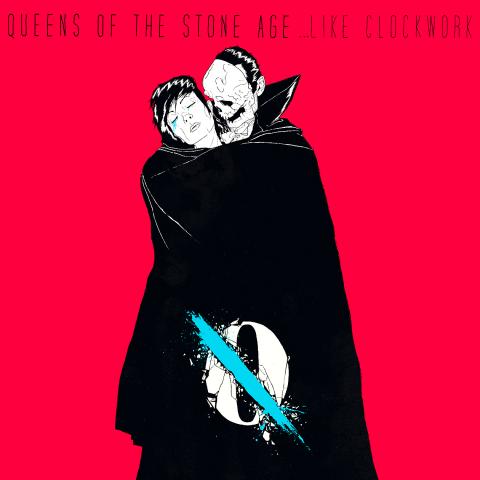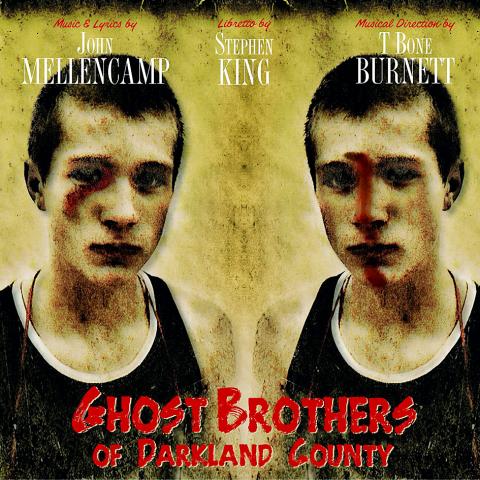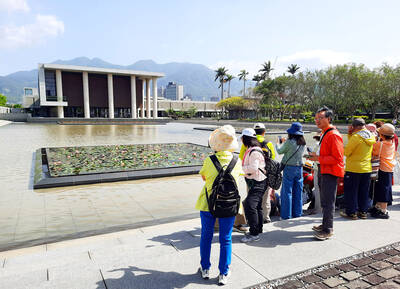... LIKE CLOCKWORK
Queens of the Stone Age
Matador

Flippancy has faded and distortion has cleared on ... Like Clockwork, the sixth studio album by Queens of the Stone Age. It’s the first new album since 2007 for the band led by the songwriter, singer and guitarist Josh Homme. It’s also the band’s first album since Homme’s heart stopped during knee surgery in 2010, requiring defibrillation and months of recovery. Perhaps it’s no wonder that his new songs focus on mortality, love, eternity and honesty.
“I survived. I speak. I breathe. I’m incomplete/I’m alive, hooray,” he sings in The Vampyre of Time and Memory.
Until 2010, Homme was hugely prolific. He has been a linchpin of the rock scene in Palm Desert, California, as a member of Kyuss in the 1980s and 1990s; the founder of Queens of the Stone Age in 1996 and the more sporadic project Eagles of Death Metal in 1997; the organizer of a series of communal albums called the Desert Sessions; and since 2009 a member of Them Crooked Vultures with John Paul Jones (of Led Zeppelin) and Dave Grohl (from Nirvana and Foo Fighters; Grohl also plays drums for half of ... Like Clockwork). Homme’s new songs are as strong as anything in that extensive catalog.

While Palm Desert music has sometimes been termed “stoner rock,” there’s nothing dazed or blurry about Homme’s songwriting, which revolves around lean, exposed guitar riffs and sustained melodies. Even when the songs churn in odd meters, Homme gives them an architectural lucidity.
The music on ... Like Clockwork hones the way Queens of the Stone Age draw on the 1960s and 1970s with a flinty, contemporary sense of strategy. Songs start out with seemingly basic blues-rock, boogie or metal riffs, only to have the guitars (Homme, Dean Fertita and Troy Van Leeuwen) diverge to stake out separate tiers of lead, rhythm and scrabbling texture. In some songs, they also pile on together for some latter-day glam-rock or heave in and out of odd meters.
Yet they always open spaces for Homme’s long-breathed vocals. He’s a singer who never has to bark or scream, although he can. And on this album, in the title song and elsewhere, he also allows himself some unabashedly serious, barely accompanied ballad singing, as vulnerable as he has ever been.
In I Appear Missing, he sings: Shock me awake, tear me apart/Pinned like a note in a hospital gown/A prison of sleep, deeper down/The rabbit hole never to be found.
The guitars, deployed high and low like the ones in the Beatles’ I Want You (She’s So Heavy), pick a restrained riff, then switch to a bruising, crashing one, building volcanically with churchlike chimes’ pealing; it stops suddenly, startlingly, and then climbs further. The song is about a man at the border of life and death, with everything at stake, and that’s exactly how it sounds.
— Jon Pareles, NY Times News Service
GHOST BROTHERS OF DARKLAND COUNTY
John Mellencamp, Stephen King and T Bone Burnett
Hear Music/Concord
Another grown-up rocker has headed into musical theater: John Mellencamp.
Ghost Brothers of Darkland County, which had a theatrical production last year in Atlanta, is a grim Southern Gothic tale of tragedy recurring through generations. It has brothers who hate each other, a girl they both want, booze, guns and old secrets, with its violence spurred by the Devil and observed by ghosts.
In the 1990s Mellencamp enlisted the author Stephen King to collaborate on a stage piece about a cabin haunted by murder. Eventually they brought in T Bone Burnett, the master of spooky, rootsy ambience who has produced Mellencamp’s albums since 2008, as well as Grammy-winning albums like O Brother, Where Art Thou? and the Robert Plant-Alison Krauss collaboration Raising Sand.
They recorded the Ghost Brothers album with a studio cast of Americana and Americana-loving rockers: Sheryl Crow, Rosanne Cash, Kris Kristofferson, Taj Mahal, Neko Case, Dave and Phil Alvin from the Blasters (quarreling brothers in real life) and, as the smirking Devil figure, Elvis Costello. Mellencamp, sounding even gruffer than Kristofferson, arrives for the finale.
Actors, including Matthew McConaughey and Meg Ryan, deliver snippets of dialogue, though it takes a reading of King’s full libretto, which is included physically or digitally in the album’s various configurations, to understand the ending.
The songs, as with Mellencamp’s own albums lately, look to a down-home past: to blues, country, rockabilly, the Rolling Stones and Bob Dylan. Burnett’s production gives them a penumbra of disquiet. He keeps ballads eerily slow, makes the percussion thud or bristle and creates shadowy dark corners of reverb.
Only a few songs directly advance the plot. Instead, Mellencamp illuminates characters and has them ponder questions of responsibility and truth, heaven and hell: “For those too weak to tell the truth/Into darkness you will be cast,” Kristofferson sings in What Kind of Man Am I.
Mellencamp came up with superb songs for women, who respond with quietly glowing performances. Case and Crow play frisky good-time girls in That’s Who I Am and Jukin’ and, even better, Crow wishes for a heaven in Away From This World and Cash becomes a troubled but devoted wife in You Don’t Know Me. Those songs rise above the story line, but probably wouldn’t have existed without characters to sing them — reason enough for a rock songwriter to venture into a musical.
— Jon Pareles, NY Times News Service

When the South Vietnamese capital of Saigon fell to the North Vietnamese forces 50 years ago this week, it prompted a mass exodus of some 2 million people — hundreds of thousands fleeing perilously on small boats across open water to escape the communist regime. Many ultimately settled in Southern California’s Orange County in an area now known as “Little Saigon,” not far from Marine Corps Base Camp Pendleton, where the first refugees were airlifted upon reaching the US. The diaspora now also has significant populations in Virginia, Texas and Washington state, as well as in countries including France and Australia.

On April 17, Chinese Nationalist Party (KMT) Chairman Eric Chu (朱立倫) launched a bold campaign to revive and revitalize the KMT base by calling for an impromptu rally at the Taipei prosecutor’s offices to protest recent arrests of KMT recall campaigners over allegations of forgery and fraud involving signatures of dead voters. The protest had no time to apply for permits and was illegal, but that played into the sense of opposition grievance at alleged weaponization of the judiciary by the Democratic Progressive Party (DPP) to “annihilate” the opposition parties. Blamed for faltering recall campaigns and faced with a KMT chair

Article 2 of the Additional Articles of the Constitution of the Republic of China (中華民國憲法增修條文) stipulates that upon a vote of no confidence in the premier, the president can dissolve the legislature within 10 days. If the legislature is dissolved, a new legislative election must be held within 60 days, and the legislators’ terms will then be reckoned from that election. Two weeks ago Taipei Mayor Chiang Wan-an (蔣萬安) of the Chinese Nationalist Party (KMT) proposed that the legislature hold a vote of no confidence in the premier and dare the president to dissolve the legislature. The legislature is currently controlled

Dull functional structures dominate Taiwan’s cityscapes. But that’s slowly changing, thanks to talented architects and patrons with deep pockets. Since the start of the 21st century, the country has gained several alluring landmark buildings, including the two described below. NUNG CHAN MONASTERY Dharma Drum Mountain (法鼓山, DDM) is one of Taiwan’s most prominent religious organizations. Under the leadership of Buddhist Master Sheng Yen (聖嚴), who died in 2009, it developed into an international Buddhist foundation active in the spiritual, cultural and educational spheres. Since 2005, DDM’s principal base has been its sprawling hillside complex in New Taipei City’s Jinshan District (金山). But